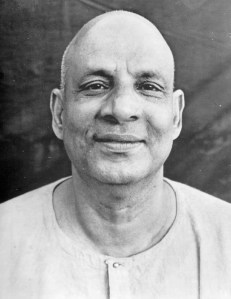Tags
ahimsa, empathy, negative emotions, Patanjali, sadhana, self-development, Spiritual Diary, Swami Sivananda, Yama
I promised to report on the outcome of keeping a Spiritual Diary and now the time has come to revisit this topic (see my post: https://padmakshidiary.wordpress.com/2014/10/05/10-commandments-a-follow-up/ Since January I was painstakingly noting down how disciplined I am with my yoga and meditation practice, and, more importantly, how much calm, fair and honest I am on a daily basis. All to be more aware of my shortcomings and slowly eliminate them.
Why do I bother working on my vices and don’t just accept that I’m simply an imperfect human being? The classical system of Yoga codified by the sage Patanjali lays out the moral foundation of Yoga in the form of 5 Yamas (restraints affecting relationship with others) and 5 Niyamas (observances, self-discipline). According to Patanjali, those moral obligations would need to be fulfilled before attempting next steps: asana, pranayama, pratyahara (sense withdrawal), dharana (concentration), dhyana (meditation) and samadhi (enlightenment). In other words, yoga without those commitments towards others and yourself is reduced to exercise of body and mind and cannot lead to higher spiritual states.

Asana and pranayama are just 2 out of 8 limbs of Yoga in classical system of Patanjali
I’m quite disciplined with my yoga and meditation practice. When I don’t have time for a full session, I try to do at least pranayamas and a short meditation. In the last half a year I skipped just 8 meditation and 11 asana/pranayama sessions. By keeping the Diary, I was hoping to see a positive correlation between the time spent on sadhana (spiritual practice) and the level of calmness or self-control but, surprisingly, I haven’t found any clear link. Long meditation doesn’t prevent me from having major anger outburst, including shouting and swearing.

I try to squeeze in some yoga even on the most busy days; here: short session in Richmond Park during my parents visit in London
Examining the Diary helped me to notice some small, positive changes. My patience has improved and I’ve become less obsessed about ‘wasting time’. This was probably my first holidays ever when I allowed myself to just ‘take it easy’ rather than leave home early every single day and fill up the day with countless attractions to ‘tick’, leaving barely any time to sit down or eat. This more relaxed attitude is a direct effect of implementing mindfulness to my life.

This year’s holidays was a revelation: without rush or strict plans I managed to have amazing time AND not to annoy everyone around me.
A few months back, I got so enchanted with Thich Nhat Hanh’s books that I started observing a weekly mindfulness day
(https://padmakshidiary.wordpress.com/2015/03/07/mindfulness-a-practical-tool-to-change-your-life/). Sadly, the enthusiasm with which I embraced the idea of mindfulness days waned in a succession of weeks when I had something ‘important’ to do, visitors to take care of or simply when I was on holidays. It’s been almost 2 months since I managed to carve out the whole hassle-free, worry-free day.

Thich Nhat Hahn’s ideas are truly inspiring but I need to work on their implementation
My recent holidays in Zurich made me realize as well that I also got cured from stinginess. For example, paying a bill in a Zurich restaurant would have previously taken away all the joy of the meal but now I can see the point of just enjoying the meal with friends, even if it’s overpriced. This is a good thing as it means I’m starting to have more realistic attitude to the ‘value’ of money. I believe it is a step towards Yama of Aparigraha or non-possessiveness.

The value of the meal lies in sharing the moment with others, not its price.
Furthermore, the Diary confirmed my belief that I am an honest person with just 17 cases of any form or lying/ dishonesty in those 6 months. Satya– or truth is a Yama which I follow with relative ease. It’s not necessarily that obvious as my cultural background made me quite relaxed about the concept of cheating on a state, big institution or a company (eg. taking a bus without a ticket, etc.). In the last few years I much expanded the idea of what cheating and dishonesty is.
But that’s nearly the end of good news. It’s quite scary to realize that I was at least irritated if not downright angry for more than 2 months out of 6 and I got furious 18 times. The fact that I calm down very quickly hardly makes it any more justifiable. I also have a nasty habit of offending people who annoy me. And again, it does not matter I do it in my thought or when I refer the story to others rather than straight in their faces. However, the worst of all is blaming others, which usually means the first available person- my husband. Just to give you an idea of the scale of the problem: I noted down blaming someone on 83 days in those 6 months. It actually could have been much more as blaming doesn’t stay in the memory as well as getting angry.
 Anger has always been my major vice
Anger has always been my major vice
All of this shows clearly that Ahimsa or non-violence, the first and most important of the Yamas is a beautiful yet unreachable ideal for me. I don’t kill or physically harm other creatures (with an occasional exception of killing mosquitoes sucking my blood). But the concept of violence goes way beyond the physical level and preventing mental or verbal violence constitutes a real challenge for me.
In my diary I have focused on ‘don’ts’ but I also included some ‘do’s. My measurement of compassion/empathy was a number of good deeds done without expecting anything in return. Those little acts were almost always effortless and unimpressive and together they barely accumulated into one month of ‘goodness’.

Adopting a tiger was one of my ‘good deeds’ this year
Even though reviewing my Diary was in many ways disheartening, there is a glimmer of hope. It seems that I regularly manage to have 3-4 days in a row when I am calm, positive and peaceful. And I believe that with even more awareness and conscious effort, I will be able to extend those moments further.

The Spiritual Diary was the idea of Swami Sivananda, one of great 20th century gurus
Keeping a Spiritual Diary might seem a very dull job but I believe it’s worth the effort. If only one fills it up with honesty, it shows very clearly what one should work on to become a better person: for his own and others’ sake.
